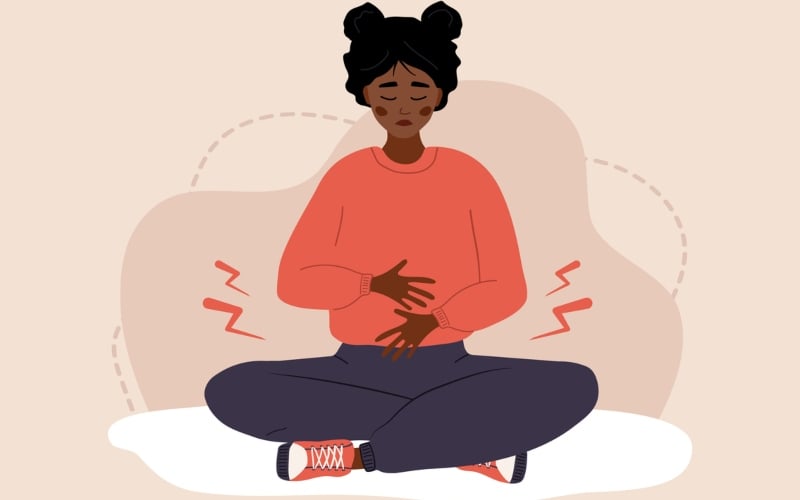The post is developed in partnership with BetterHelp.
Searching for the right therapist is one of the most essential steps in anyone’s therapy journey. If you have a therapist that doesn’t value you or listen to your needs as a client, you may feel that therapy is doing the opposite of helping.
That’s why person-centered therapy is so essential. In therapy, where the client is centered, validated, and respected, you have the space to open up, express your thoughts, and get healing in a space where you are not judged or hurt.
To know whether your current therapist values you as a client, or to determine whether a potential therapist is a good fit, here’s a checklist of eight signs that your therapist values you as their client.
They Ask You What You Want Out of Therapy
A good therapist will always ask you what you’re looking to get from therapy. They may ask what your therapeutic goals are or what you hope to achieve in a certain period of time. They will also try to get a gauge of what you’re hoping to receive from them.
Before going into therapy, ask yourself the following:
- Do I want my therapist to sit back and listen or offer advice?
- Am I looking for coping skills and behavioral modifications or simply validation and a kind shoulder to cry on (figuratively)?
- Do I hope to finish therapy in 6 months, one year, or longer?
- Do I want to see a therapist who specializes in a certain condition?
Your therapist will be looking for your answers to these questions when you arrive. If your therapist doesn’t ask you about your goals or vision for therapy, they may not be thinking about your specific wishes and may only be thinking from their own lens in the situation.
They Respect Your Boundaries
A good therapist will always respect your personal boundaries, no matter what. If you request that they give you some quiet time, they should give it. If you request that they don’t mention your mom during therapy, they should respect that.
If your therapist does something you don’t like or that hurts your feelings, be sure to tell them. If they react poorly, they’re likely not a good fit.
They Don’t Force You To Talk When You Don’t Want To
Similarly to the last point, a therapist should never force you to talk about something you don’t want to talk about. They may have an idea of what is good for you to talk about, and they can express that, but incessantly pushing you to talk about something that makes you uncomfortable is a bad sign.
If your therapist lets you take moments of silence or change the conversation, that’s a good sign that they value you as a client.
They Respect Your Wishes for a Diagnosis
Some therapists may not believe in using diagnostic labels, which is okay. However, for a client that is looking for a diagnosis, it can be harmful and hurtful to hear from their therapist that a diagnosis can’t be given. If your therapist respects your wishes to be diagnosed, they will help you find ways to find a diagnosis that fits you if there is one. They will make resources available and will not invalidate you.
You Feel Comfortable and Respected With Them
One of the biggest signs that your therapist values you as a client is when you feel completely comfortable and respected in their presence. If you’ve ever experienced trauma, feeling comfortable with a therapist is a good sign that your therapeutic relationship is healthy and safe for you.
If you feel that you have to hide things from your therapist or lie to make them respect you, they’re likely not the best fit for you.
Your Relationship Feels Therapeutic
A therapeutic relationship should feel… well… therapeutic. It should be healthy for you and shouldn’t be scary or intimidating. Therapy in itself can be difficult, but a good therapist will make you feel heard, respected, validated, and important.
If your therapist makes abusive comments or comments that aren’t professional (such as romantic or sexual advances), you should report them and find a new therapist as soon as possible.
They Let You Lead the Session if You Want To
A therapist that values their client will let the client lead the session in the way they want to. Even if you wish to talk about one thing every time you come in, you are paying the therapist to help you, and it’s not up to them what you talk about. A therapist can step in if you are threatening yourself or others or being inappropriate, but they should generally allow you to speak about the topics you want to speak about.
If your therapist cuts you off during your conversation or tells you that you can’t talk about something, it might just not be a good fit.
They Don’t Argue With You During the Session
A big red flag during therapy is when a therapist argues with you or becomes heated in conversation. A therapist should be able to regulate their emotional responses and react respectfully to you. Even if you become angered or frightened, they should not take out their own anger on you.
A respectful and client-focused therapist will know this. If it isn’t a good fit, they will end their contract with you and won’t see you further. They shouldn’t continue a therapeutic relationship that is hurtful to you both. You also have the right to end a therapeutic contract if you don’t feel that you’re getting what you need from it.
Conclusion
It’s so important to find a therapist that values you as a client. Utilize the eight signs above to know whether your therapist is valuing you and respecting you when you go to therapy. If you have had a string of bad luck with therapists, don’t give up. There are thousands of therapists online and in-person available to try out and get to know who might just be the perfect fit.

Photo Credit: Shutterstock
The post 8 Signs Your Therapist Values You as a Client appeared first on The Good Men Project.
Original Article










